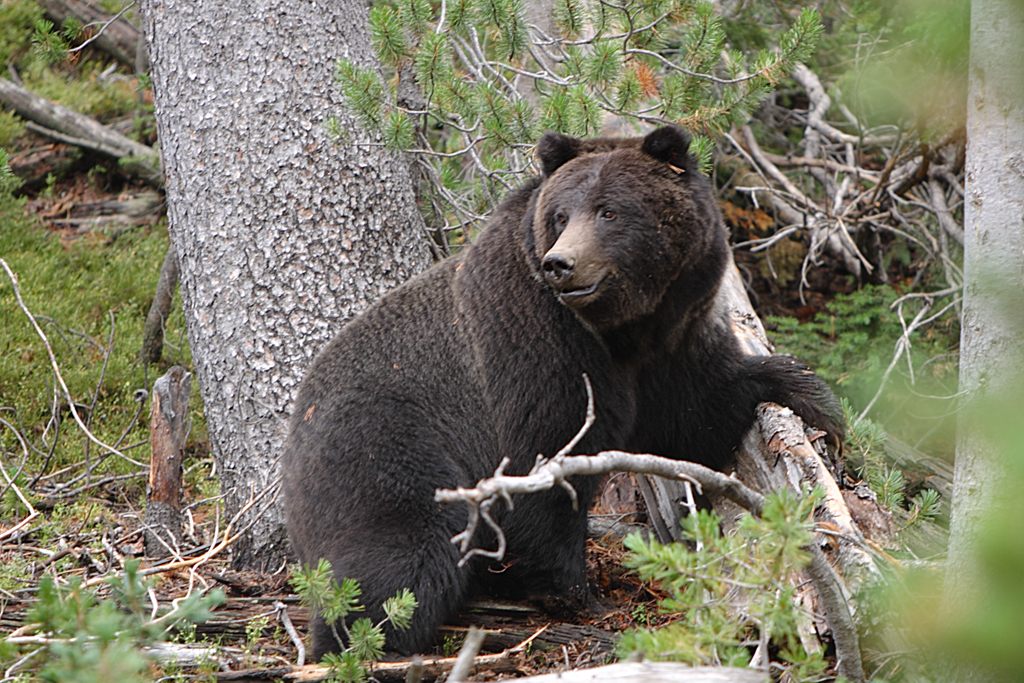If you enjoy walking in the great outdoors, sooner or later you may discover a bear browsing in a blueberry patch or ambling along on the same trail. What should you do? The standard answer nationwide, according to the North American Bear Center, is, “Speak calmly and back away slowly.” According the center, this approach “identifies you as a person, shows that you are non-threatening and gives the bear space.”
This does reduces a bear’s anxiety and may allow you to watch it a little longer before it runs off. “We like to make ourselves inconspicuous to watch them longer before they discover us and run,” the Bear Center explains. At the same time, people should follow “the standard advice to avoid eye contact and avoid running away.”
It’s very rare for a bear to make an offensive attack on humans. Bears mostly fear that they are the ones threatened. When they come into campgrounds they are looking for food, not people, and can easily be chased away by aggressive behavior like yelling, banging pots and pans, bear spray and throwing things at them.
Rather than having the wits scared out of you thinking of snarling, attacking bears, remember, you are much more likely to be struck by lightening (90 fatalities each year) than you are to be killed by a bear. There were 52 recorded deaths due to black bears between 1900 and 2003—about one every two years—and 15 fatal attacks by black bears between 2000 and the present—about 1.6 yearly. Six of those were in the US and only two on people hiking in daytime (three were in or around a home or cabin, one in a tent). Still, small odds considering North America’s black bear population estimated to be about 725,000.
Bears should not prevent you from enjoying the great outdoors, though they are not to be taken lightly. The best protection on the trail in bear country is: 1) Don’t hike alone, 2) Make noise, talk, let bears know you are in the area, so they can avoid you, 3) Don’t carry a smelly dead fish in your backpack.
Campgrounds and RV resorts in bear country present a different problem. A bear visits a campground because it knows food is there, and it can become aggressive when hungry. One simple rule for RVers should eliminate most bear problems: Keep all trash, food wrappers, food and food scraps—including candy bars, toothpaste, shampoo, anything with a fragrance—in your RV—not on the picnic table, in a garbage bag outside your door or in the fire pit. And don’t leave a cooler in the back seat of your toad or the back of your truck. Bears recognize coolers and can quickly destroy one looking for food. These precautions don’t necessarily mean you won’t have a bear wander through your campsite, but if it smells nothing and finds nothing to eat, it will wander on.
Whether in your campground or on a trail, always keep your dog on leash, and never leave it leashed up outside your RV or you may return to find only the leash.
